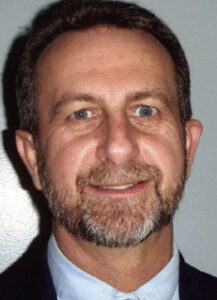Electrical outlets become focal point in Scott case
By Staff
Melissa Cason
Franklin County Circuit Judge Terry Dempsey denied the defense's motion to dismiss the charges against Christie Michelle Scott, 32, of 180 Signore Drive in Russellville, Monday afternoon.
The motion stems from missing power outlets taken from the house after the house fire that left six year-old Mason Scott dead in the early morning hours of Aug. 16, 2008.
Defense Attorney Robert Tuten said the outlets were never evaluated by their experts for a second opinion, and the fact they were allowed to have the outlet checked 'impedes our defense' and Scott's civil rights.
"The scene was clearly altered," Tuten said.
Franklin County District Attorney Joey Rushing asked the court to hear more testimony before making a decision on this dismissal.
"It's really early for this motion," Rushing said.
Dempsey sided with the state by denying the motion, however, agreed to re-visit the motion in the future once more testimony has been heard.
During Monday's testimony, the state continued to build the 'brick wall' of evidence against Scott by discrediting the defense's reason the smoke detector was not hanging on the wall.
Firefighters Mickey Gentry and Jason Miller both testified that they entered the house in a search mode with a one and three-quarter inch fire hose, but no water was sprayed from the hose until they got the 'fire room'.
"I did not turn the hose on until I got to the fire room," Gentry said. "I am not aware of anyone spraying water in the hallway."
Gentry said once the hose was turned on they used the spray fog setting to get the fire out. The hose was never used in a straight stream in the house.
"It only took a few minutes to get the fire out in the room," Gentry said.
During the opening statements last week, Tuten offered the heavy water, as a reason the smoke alarm was not on the wall.
Gentry testified that he did not hear the smoke detector go off, but also said he has been at fires before where no smoke detector sounded.
The state contends the smoke detector was forcefully removed from the wall because Scott did not want Mason to hear it and get out of the house alive.
Firefighter Jodi Hitt also testified about his search for Mason after the fire was extinguished.
Hitt testified he went into different areas of the house looking in any place a small child might hide.
"I was hoping for the best," Hitt said. "I was hoping maybe he got out."
Hitt said his hopes were doused when he found Mason in his bedroom.
"I informed the captain that I had located the boy," Hitt said. "They asked me for the condition of the body, and I said I didn't want to talk about it."
Hitt said he stayed with Mason's body until the state fire marshal arrived to make sure the scene was not compromised.
Hitt stayed on the scene to observe the investigation for educational purposes.
Hitt was shown a series of pictures of different power outlets. He identified them all as power outlets with cut cords. Hitt was shown in one picture holding the outlet up by its cut cord.
Hitt testified that on Thursday following the fire, he retrieved the outlets from the back of an investigator's car to allow the electrical engineer to assess them. Hitt admitted he did not know where the outlets are.
The state admits the outlets are missing, prompting the motion for the dismissal of the charges.
Rushing addressed the missing electrical outlets when Capt. Steve Thornton took the stand.
Thornton was designated as the evidence custodian in the fire case, which means he was charged with securing evidence for prosecution.
Thornton said the two outlets that were most important in this case are outlet three and outlet four.
Thornton said he had outlet three in his possession the entire time, but it was mislabeled. He did not realize that he had outlet three until he started examining photos took during the investigation.
"As soon as I realized it [the mislabeling], it was brought to attention," Thornton said.
Thornton said outlet three was sent to the defense's expert, but labeled as another outlet.
Tuten recognized that their expert did see outlet three, but stated that the expert did not have all the facts, and his opinion could have been altered if he knew it was one of the important outlets.
Thornton said outlet four was sent to the investigators with the insurance company per their request. Thornton said he called the investigators to confirm they had outlet four in their possession, but the investigator told him he could not be sure it was indeed outlet four.
Thornton maintained that outlet four was sent to the investigator, so it must be outlet four that is in his possession.
The other outlets-one, two and five remained in question. Thornton said outlet one is the missing outlet, but it is not pertinent to the case; outlets two was damaged too severely to be of much help; and outlet five was left in the home when it was returned to owners on Aug. 22.
Thornton testified that the police and fire department provided 24-hour security at the home from Saturday to Tuesday. The scene was expected to be released to the family on that Wednesday, but an electrical engineer was found to look at the outlets.
Thornton said the door was boarded up on Tuesday night to prevent entrance into the house. The electrical engineer came on Thursday to look at the outlets.
During his testimony, Thornton was also questioned about the position of the smoke detector.
Thornton said the smoke detector did not suffer the same heat and smoke damage as the other items hanging on the wall, and in his opinion, it was removed from the wall before the fire.
During cross-examination, Thornton agreed that the smoke detector could have been knocked off the wall because there was some light smoke damage to the detector. However, during redirection from the prosecution, Thornton said it was more likely the debris under the detector was there because it was kicked instead of being just knocked off the wall.
Testimony in the case continues today at 8:30 a.m.








